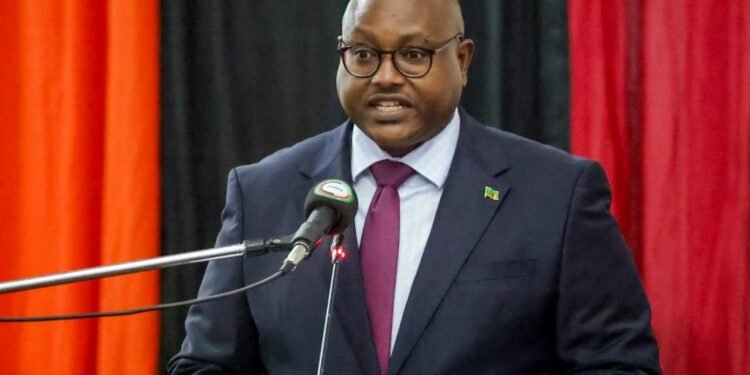Zambia, Zimbabwe forge stronger ties
By Tony Nkhoma
THE Zambian government has pledged its continued advocacy for the removal of sanctions constraining Zimbabwe’s full economic potential.
Minister of Foreign Affairs and International Cooperation Mulambo Haimbe said Zambia valued Zimbabwe’s cooperation in managing shared resources.
According to a statement seen by The Mast, Haimbe said this during the Inaugural Session of the Zambia–Zimbabwe Bi-National Commission (BNC) being held in Harare.
Haimbe who is leading the ministerial Zambian delegation, said Zambia and Zimbabwe had reaffirmed their commitment to deepening trade, economic and political cooperation.
“Zambia values Zimbabwe’s partnership in advancing regional integration and collective self-reliance. Our cooperation in managing shared resources remains an important pillar of the relationship,” he said.
Haimbe highlighted Zambia and Zimbabwe’s collaboration on peace, security and governance.
“Both nations have enjoyed lasting stability and urged continued joint patrols, intelligence sharing and mutual legal assistance. Finalising the legal framework to support this cooperation is essential,” Haimbe said.
He reaffirmed Zambia’s commitment to promoting South–South cooperation and advancing shared positions within the Common Market for Eastern and Southern Africa (COMESA) and the Southern African Development Community (SADC) and the African Union (AU).
Haimbe said President Hakainde Hichilema’s visit to Zimbabwe to co-chair the Inaugural Bi-National Commission alongside President Emmerson Mnangagwa, marked a new phase in the historic relations between the two nations.
Zimbabwe’s Minister of Foreign Affairs and International Trade and head of Zimbabwe’s ministerial delegation Dr Amon Murwira reaffirmed his commitment to closer cooperation with the launch of the Inaugural Zimbabwe–Zambia Bi-National Commission (BNC), marking a milestone in 45 years of diplomatic relations.
Dr Murwira said the BNC replaced the former Joint Permanent Commission on Cooperation, providing a higher-level framework for dialogue and implementation of bilateral agreements.
He cited key areas of collaboration such as trade facilitation, energy generation through the Kariba Hydroelectric Project, infrastructure projects such as the Lions’ Den–Kafue railway link and tourism promotion under the KAZA Univisa regime.
Dr Murwira underscored the need to eliminate tariff and non-tariff barriers, declaring a movement of “Tariffs Must Fall” to enhance cross-border trade and industrialisation.
Both countries reaffirmed their shared goal of improving citizens’ livelihoods through joint industrialisation, infrastructure development, and policy reforms that dismantle colonial-era trade restrictions.

























